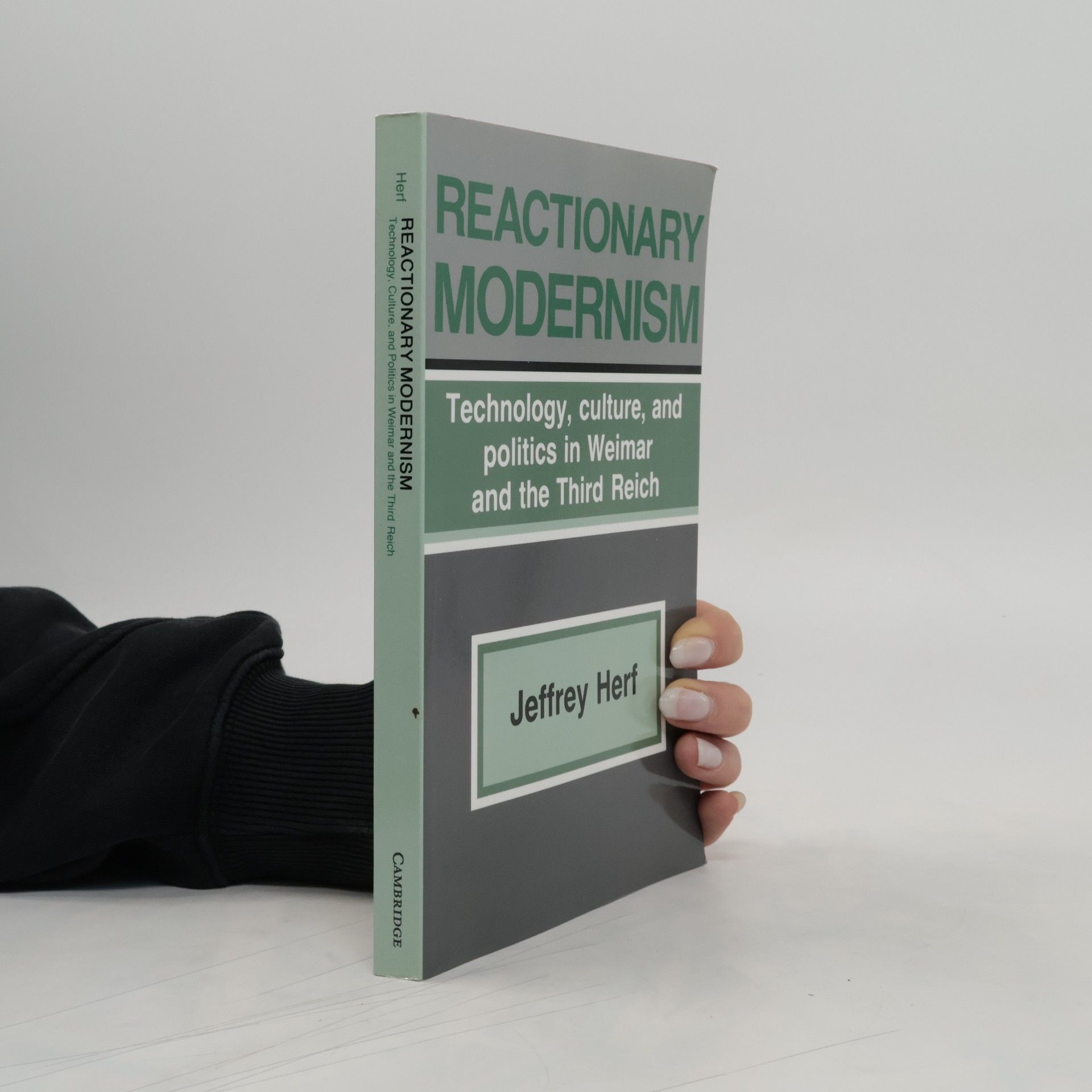Jeffrey Herf Bücher
Jeffrey Herf ist auf die europäische Geistesgeschichte des 20. Jahrhunderts spezialisiert, mit einem besonderen Schwerpunkt auf Deutschland. Seine Arbeit befasst sich mit komplexen Denkströmungen und deren Auswirkungen auf die europäische Geschichte. Herfs Schreibstil ist analytisch und aufschlussreich und bietet den Lesern ein tiefes Verständnis wichtiger Perioden und Debatten. Seine Expertise auf diesem Gebiet macht ihn zu einer Autorität bei der Interpretation der Vergangenheit.





Jeffrey Herf untersucht die Ursprünge und politischen Auswirkungen des modernen Antisemitismus, der über politische Lagergrenzen hinweg wirkt. Anhand der deutschen Geschichte des 20. Jahrhunderts zeigt er, wie verschiedene Bewegungen und Ideologien, einschließlich Islamismus, von antisemitischem Hass geprägt sind. Das Buch bietet eine Einführung in wichtige Quellen dieser Tradition.
Reactionary modernism
- 272 Seiten
- 10 Lesestunden
In a unique application of critical theory to the study of the role of ideology in politics, Jeffrey Herf explores the paradox inherent in the German fascists' rejection of the rationalism of the Enlightenment while fully embracing modern technology. He documents evidence of a cultural tradition he calls 'reactionary modernism' found in the writings of German engineers and of the major intellectuals of the. Weimar right: Ernst Juenger, Oswald Spengler, Werner Sombart, Hans Freyer, Carl Schmitt, and Martin Heidegger. The book shows how German nationalism and later National Socialism created what Joseph Goebbels, Hitler's propaganda minister, called the 'steel-like romanticism of the twentieth century'. By associating technology with the Germans, rather than the Jews, with beautiful form rather than the formlessness of the market, and with a strong state rather than a predominance of economic values and institutions, these right-wing intellectuals reconciled Germany's strength with its romantic soul and national identity.
Three Faces of Antisemitism examines the three primary forms of antisemitism as they emerged in modern and contemporary Germany, and then in other countries.
Israel's Moment is a major new account of the foundation of the State of Israel from 1945 to 1949. Jeffrey Herf reveals how support for and opposition to the Jewish state in Palestine in the United States and Europe was very different from the way these positions came to be understood during the... číst celé